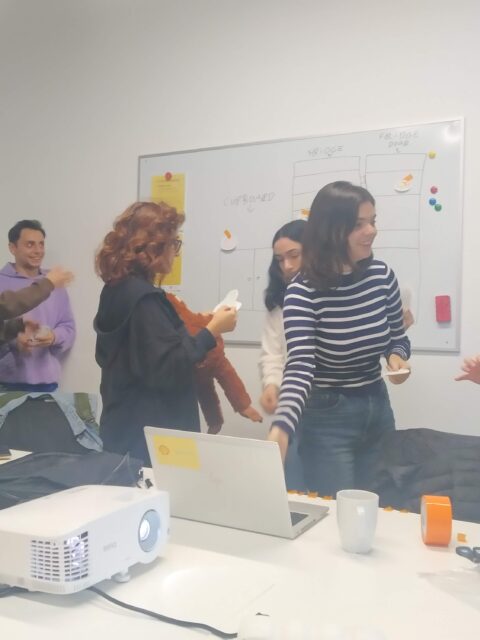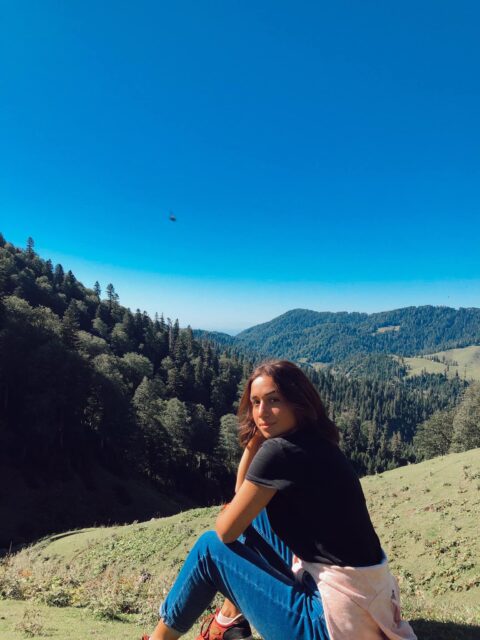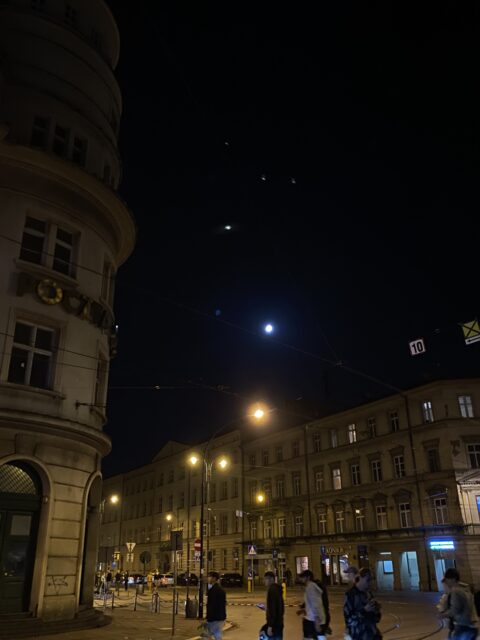EUROPEAN VOLUNTARY SERVICE IN BERNAU (BEI BERLIN)
From September 2015 I am EVS volunteer (Erasmus+) in Internationaler Bund in Bernau bei Berlin. The organisation has many aims. One of them, there is an education centre where young people have supporting and developing courses. The classes are adapted to individual needs of each person. In case of learning problems or preparing for exams, students can get support from teachers and psychologists.
The organisation cooperates with others in international projects.
In October, I participated in the project “Our House of Europe” – Erasmus+ Program (the Youth), organized by Internationaler Bund Bernau, CEFIR in Dunkerque and the Regional Institute in Katowice. Partner schools from Poland were the John Paul II Special Purpose School and Education Center in Jaworzno, and the Secondary and Vocational Schools in Siemianowice Slaskie. The main aim of the project was the European awareness and equal educational opportunities for young people with limited opportunities to acquire knowledge and skills because of disabilities, origin or financial situation. 40 young people from Poland, Germany and France took part in integration games, language animations, various workshops where “Europe” appeared in many views.
The youth knew Bernau, where there was the project, in the urban game:
among others, they were discovering elements associated with the European Union.
Also we went to near Berlin where German young people were our guides. The sightseeing program includes the most popular landmarks of Berlin, such as the Brandenburg Gate, the fragments of the Berlin Wall (East Side Gallery), the Reichstag or Alexander Platz, where many passers-by were surprised by listening to German, Polish and French expressions like “Thank you,” “Please” or “Sorry”.
The interesting task was a simulation of the Council of Europe, where young people played the representatives of different countries and voted for the proposals.
After the first day of the project Adrian Fijołek, vice president of the Regional Institute in Katowice, translator and trainer, said enthusiastically:
“Some of these young people the first time meet people from another country. Many of them have never been abroad. Until now they have been able to speak foreign language only during classes at school. Today, they are thrown in at the deep end and they find different ways of communicating with each other: from saying single words, showing gestures, facial expressions, to searching sentences in their mobiles. With great joy I was watching their joy and openness during the integration workshops or language animations. I am glad that they want to cooperate with each other in spite of many everyday difficulties in their schools, homes, communities. Here they are positive, as they say, and try to take initiative. They overcome some limitations or shyness, they find the courage. Today you could feel that they know more than one day.”
There are some impressions of Polish participants:
Wiktoria (17, Chorzow): “I came here to learn other languages, to know new people, their cultures and to acquire new experiences.”
“The atmosphere in our group is very good,” says Ania (22, Jaworzno). Klaudia (17, Chorzow): “Today we have learned different words, communication and teamwork. Also we have learned to be open-minded towards other people not only from our country.”Marek (20, Chorzow) sums up the present day: “We have made first friendships and met very interesting people.”*
A group of each country during one of the evenings presented the elements of their culture. During Polish evening, the participants could familiarize with lots of information about Poland, especially the area of Silesia. They could watch the Krakowiak (Cracow region folk dance) and volunteers were learning simple dance steps; to cheer along with fans of Ruch Chorzow or get a taste of Michałki from Siemianowice (regional sweets) and homemade apple and plum preserves. As part of the information about Poland I had made a presentation “Education System in Poland,” which later turned out to be the starting point for many discussions about some culture differences and similarities.
The project brought young participants many advantages: unusual experiences, a different way of acquiring knowledge, stronger motivation to learn foreign languages and knowing other cultures, and many others. Last day, most people declared willingness to re-take a similar undertaking. So enjoy the opportunities that gives us the Erasmus+ programme!Quotations (my translation from Polish) are from Facebook Instytut Regionalny w Katowicach.In November, I participated in an integration trip for new students of the education centre of Internationaler Bund Bernau. In the undertaking there were students from Bernau, Eberswalde and surroundings. There were integration games, sports, board games, billiard. Together we were making pizza. Moreover, the program includes a guide tour of the Ethnographic Museum in Wandlitz (Barnim Panorama), where we could see old life in the countryside, strictly subordinated to changing seasons.
And in Berlin we participated in Berlin Dungeon, also an interesting show but with less idyllic atmosphere: black humor and horror were leading extreme emotions. We were going around an old town house where personages, with a bit of an eccentric style, told us bloodcurdling Berlin stories. The viewers not only watch actors, but also often they take part in the show. The haunting undertaking. Soon new events so also new impressions, and I am happy to share them 🙂
Justyna, EVS volunteer, Bernau bei Berlin (Germany).





Comments by admin